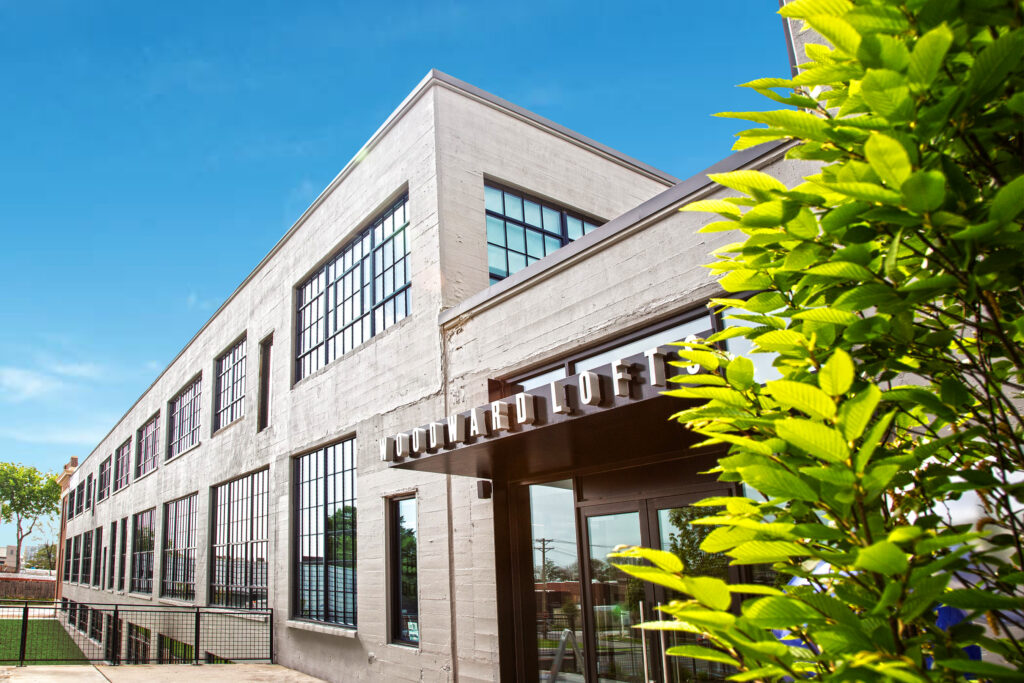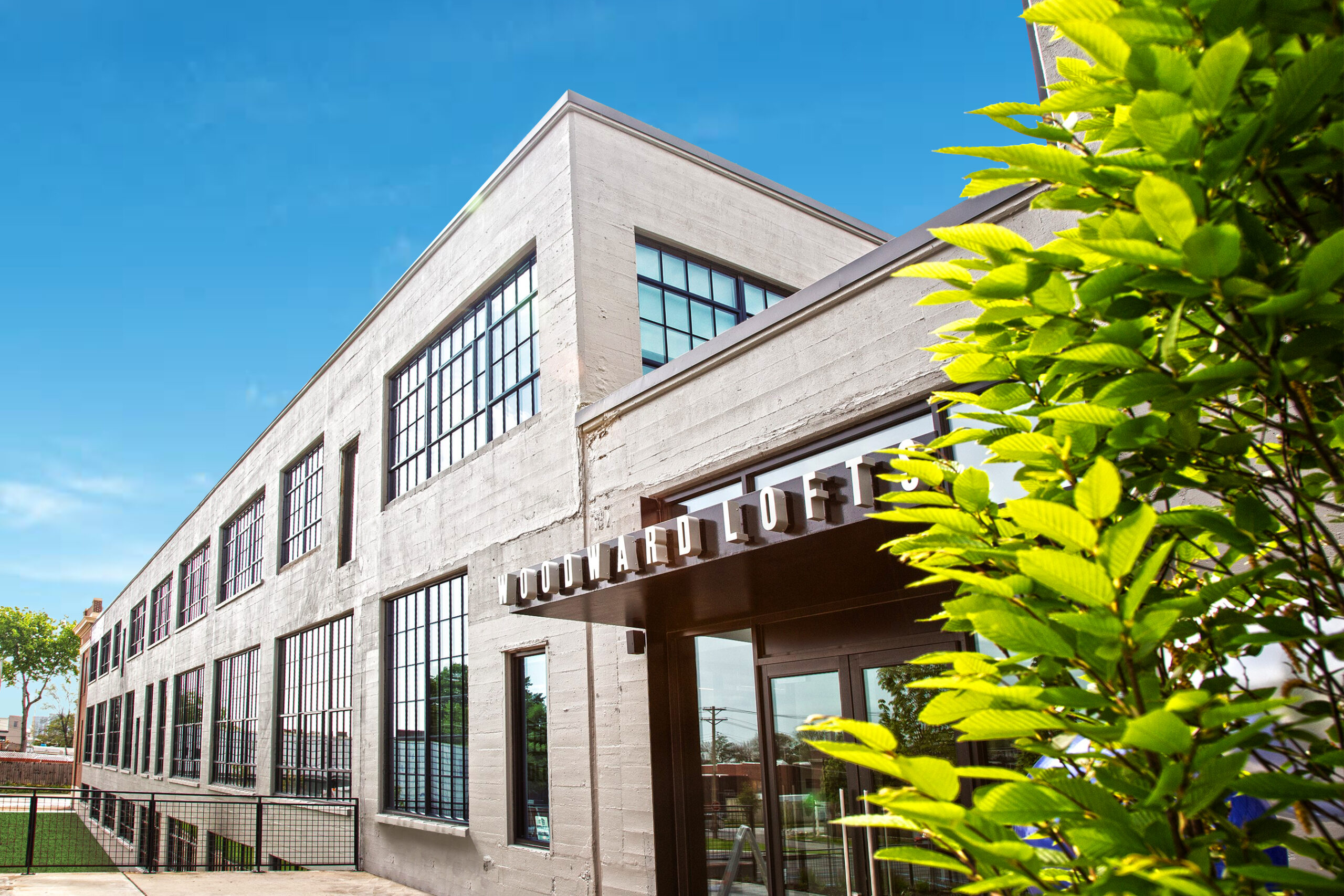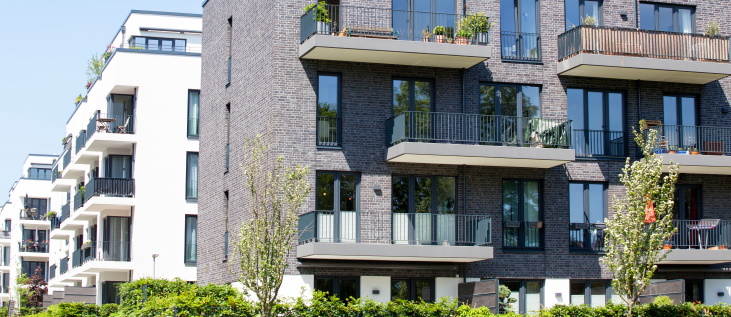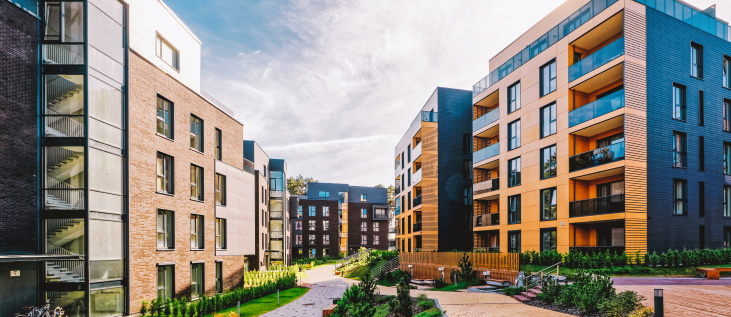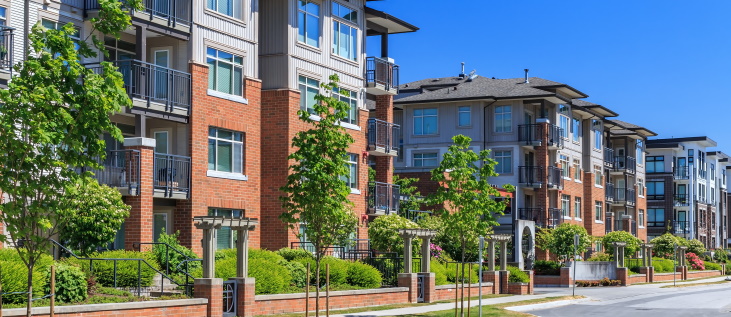Kansas City, a gem nestled in the heartland of America, is not just known for its unique blend of jazz music, mouth-watering barbeque, and rich history. It’s also gaining a reputation as a burgeoning hub for the Kansas City real estate market. What makes it a magnet for homebuyers and investors alike? Let’s embark on a journey to uncover the allure of Kansas City.
 Kansas City’s real estate market is dynamic and varied, presenting numerous opportunities for both homebuyers and investors. Known for its blend of urban allure and suburban charm, the Kansas City housing market is currently in a seller’s market, characterized by increasing home prices and limited inventory. This results in a highly competitive environment, posing potential hurdles for first-time homebuyers, while simultaneously offering ripe opportunities for astute investors in the MO housing market.
Kansas City’s real estate market is dynamic and varied, presenting numerous opportunities for both homebuyers and investors. Known for its blend of urban allure and suburban charm, the Kansas City housing market is currently in a seller’s market, characterized by increasing home prices and limited inventory. This results in a highly competitive environment, posing potential hurdles for first-time homebuyers, while simultaneously offering ripe opportunities for astute investors in the MO housing market.
 Kansas City’s attractiveness for real estate investment emanates from its robust economy, varied job market, and positive demographic trends. With primary industries such as healthcare, finance, and manufacturing, the city boasts a vibrant and steady economy, which in turn fuels the real estate market.
Kansas City’s attractiveness for real estate investment emanates from its robust economy, varied job market, and positive demographic trends. With primary industries such as healthcare, finance, and manufacturing, the city boasts a vibrant and steady economy, which in turn fuels the real estate market.
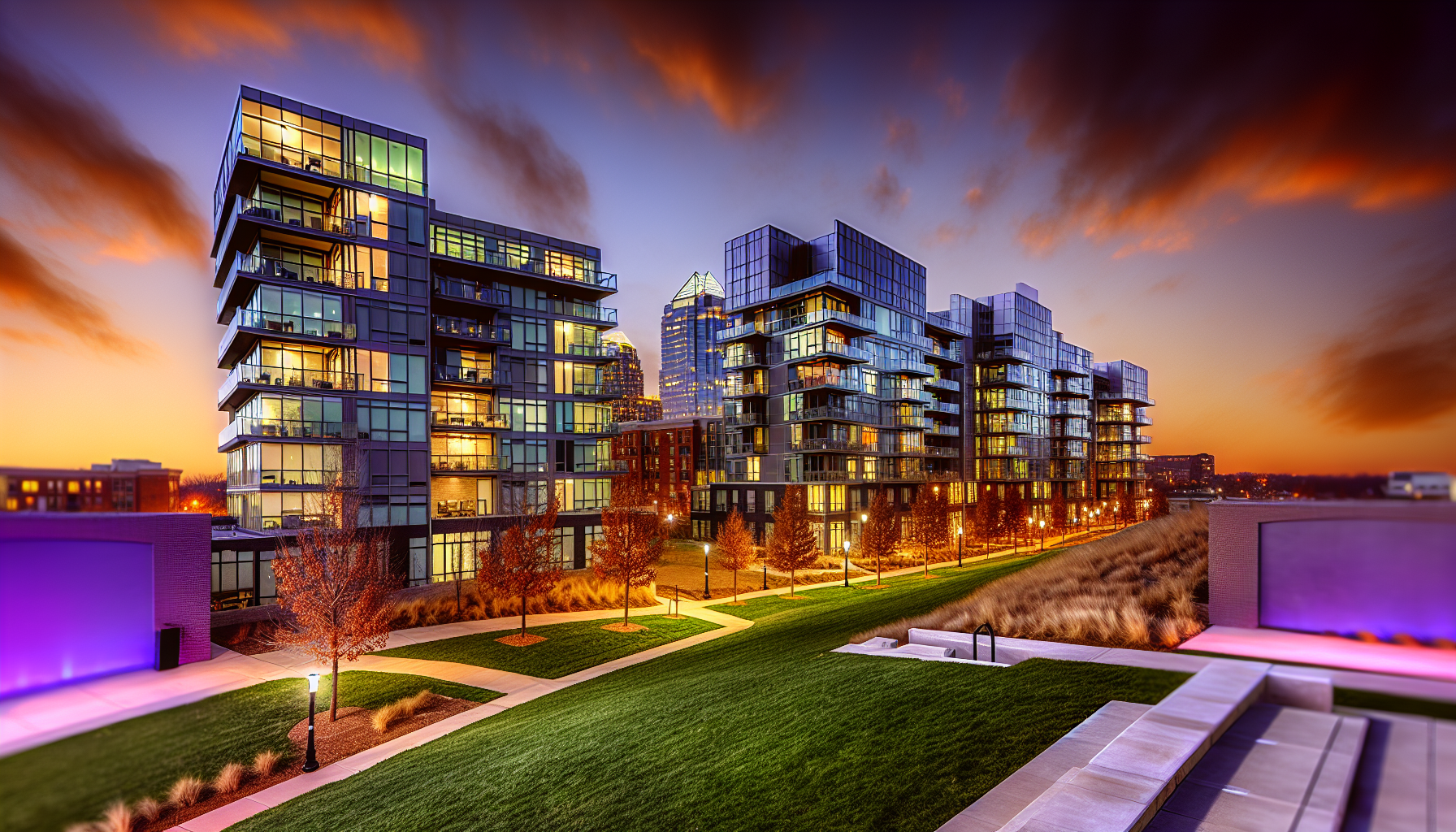 The rental property market in Kansas City presents encouraging opportunities for investors. With average rental yields of 6% and declining vacancy rates, the rental market provides opportunities for strong returns. Furthermore, multi-family units present an attractive investment opportunity due to their higher rental yields and occupancy rates compared to single-family homes.
The rental property market in Kansas City presents encouraging opportunities for investors. With average rental yields of 6% and declining vacancy rates, the rental market provides opportunities for strong returns. Furthermore, multi-family units present an attractive investment opportunity due to their higher rental yields and occupancy rates compared to single-family homes.
 The commercial real estate sector in Kansas City offers its own distinct opportunities. With a high occupancy rate of 94.9% for office spaces, and a slight upward trend rent prices in the office space sector, the outlook is positive for those seeking square foot options in the metropolitan area.
Key sectors for commercial real estate investment in Kansas City include retail, office, and industrial properties.
The commercial real estate sector in Kansas City offers its own distinct opportunities. With a high occupancy rate of 94.9% for office spaces, and a slight upward trend rent prices in the office space sector, the outlook is positive for those seeking square foot options in the metropolitan area.
Key sectors for commercial real estate investment in Kansas City include retail, office, and industrial properties.
 The future of Kansas City’s real estate market appears promising. From short-term trends to long-term prospects, the city’s real estate landscape is expected to remain vibrant and dynamic. Upcoming developments, infrastructure projects, and economic policies are expected to further shape the market and create new opportunities for investors.
The future of Kansas City’s real estate market appears promising. From short-term trends to long-term prospects, the city’s real estate landscape is expected to remain vibrant and dynamic. Upcoming developments, infrastructure projects, and economic policies are expected to further shape the market and create new opportunities for investors.
Key Takeaways
- Explore the competitive Kansas City real estate landscape with increasing home prices and limited inventory.
- Identify market barriers, apply risk mitigation strategies, and leverage professional advisors to maximize investment potential.
- Stay informed about upcoming developments such as rising home prices in order to make successful investments in the KC area.
Exploring the Kansas City Real Estate Landscape
 Kansas City’s real estate market is dynamic and varied, presenting numerous opportunities for both homebuyers and investors. Known for its blend of urban allure and suburban charm, the Kansas City housing market is currently in a seller’s market, characterized by increasing home prices and limited inventory. This results in a highly competitive environment, posing potential hurdles for first-time homebuyers, while simultaneously offering ripe opportunities for astute investors in the MO housing market.
Kansas City’s real estate market is dynamic and varied, presenting numerous opportunities for both homebuyers and investors. Known for its blend of urban allure and suburban charm, the Kansas City housing market is currently in a seller’s market, characterized by increasing home prices and limited inventory. This results in a highly competitive environment, posing potential hurdles for first-time homebuyers, while simultaneously offering ripe opportunities for astute investors in the MO housing market.
Vibrancy of Downtown Kansas City
Downtown Kansas City is a cultural, commercial, and residential hub in the Kansas City metro area. Its high-rise projects, bustling retail spaces best neighborhoods, and attractions like the SEA LIFE Kansas City Aquarium and the National World War I Museum make it a magnet for homebuyers and tourists in Kansas City MO. With the average sales price at $290,000 and the median listing price and median sale price reflecting a similar trend, it presents an enticing investment scenario for those keen on the city’s real estate market, especially when compared to the national average.Suburban Expansion
In the outskirts of the city center, suburban regions surrounding Kansas City are witnessing a significant growth. The appeal of larger homes, bigger yards, more schools, and a more tranquil lifestyle is attracting an influx of prospective buyers. Emerging construction projects and schools, along with population increase in regions such as Platte and Clay counties, are generating abundant investment opportunities.Market Comparisons
Contrasting Kansas City’s market with regional and national trends helps highlight its distinctive characteristics and potential. The city’s robust economy, diverse job market, and population growth are contributing to a sustained demand for housing. Despite a 15.6% decrease in home sales in September 2023 compared to the same month the previous year, the housing market trends show that the market retains its dynamism and continues to draw investors and buyer’s market, avoiding a housing market crash.Investment Spotlight: Kansas City’s Attractive Qualities
 Kansas City’s attractiveness for real estate investment emanates from its robust economy, varied job market, and positive demographic trends. With primary industries such as healthcare, finance, and manufacturing, the city boasts a vibrant and steady economy, which in turn fuels the real estate market.
Kansas City’s attractiveness for real estate investment emanates from its robust economy, varied job market, and positive demographic trends. With primary industries such as healthcare, finance, and manufacturing, the city boasts a vibrant and steady economy, which in turn fuels the real estate market.
Economic Engines
The city’s economic powerhouses, including healthcare, technology, and manufacturing, add to its real estate market attractiveness. The healthcare industry, for instance, is a major source of employment and drives economic development in neighborhoods throughout the region. These flourishing sectors not only generate jobs but also instigate demand for residential and commercial real estate.Demographic Trends
Demographic patterns, encompassing population growth and a youthful workforce, stimulate housing demand in Kansas City. The city’s population is showing a steady growth, and with a mean age of 36.7 years, Kansas City has a young, dynamic population that contributes to the vibrancy and demand in the real estate market in largest city.Rental Property Insights
 The rental property market in Kansas City presents encouraging opportunities for investors. With average rental yields of 6% and declining vacancy rates, the rental market provides opportunities for strong returns. Furthermore, multi-family units present an attractive investment opportunity due to their higher rental yields and occupancy rates compared to single-family homes.
The rental property market in Kansas City presents encouraging opportunities for investors. With average rental yields of 6% and declining vacancy rates, the rental market provides opportunities for strong returns. Furthermore, multi-family units present an attractive investment opportunity due to their higher rental yields and occupancy rates compared to single-family homes.
Rental Yields and Occupancy Rates
Rental yields and occupancy rates in Kansas City are typically advantageous for investors. The current trend indicates a decrease in vacancy and higher mortgage rates, with the rental vacancy rate declining from 11% in 2009 to 6.8% presently. This suggests a balanced rental market, providing investors with potential for substantial returns.The Appeal of Multi-Family Units
Multi-family units are especially enticing in Kansas City due to their cost-effectiveness and demand from renters. They offer a range of advantages, such as the capability to manage multiple units at once, a higher cash flow return on investment, and more stable rental income. Given the current high demand for rental properties, investing in multi-family units can offer promising returns on your real estate investments, particularly in the investment property sector.Commercial Real Estate Outlook
 The commercial real estate sector in Kansas City offers its own distinct opportunities. With a high occupancy rate of 94.9% for office spaces, and a slight upward trend rent prices in the office space sector, the outlook is positive for those seeking square foot options in the metropolitan area.
Key sectors for commercial real estate investment in Kansas City include retail, office, and industrial properties.
The commercial real estate sector in Kansas City offers its own distinct opportunities. With a high occupancy rate of 94.9% for office spaces, and a slight upward trend rent prices in the office space sector, the outlook is positive for those seeking square foot options in the metropolitan area.
Key sectors for commercial real estate investment in Kansas City include retail, office, and industrial properties.
Commercial Investment Opportunities
The city of Kansas City provides a variety of property types of commercial investment opportunities, including Kansas City properties such as:- Retail properties in the Country Club Plaza and Westport
- Industrial properties in the Kansas City Industrial Park
- Mixed-use developments in districts like the Crossroads Arts District and River Market
Future of Workspace
The future of workspace in Kansas City is changing, with trends such important factors such as remote work and flexible office spaces influencing the market. Due to the pandemic-induced shift to remote work, the demand for traditional office spaces has decreased. However, this has given rise to the popularity of flexible workspaces and coworking spaces, significantly reshaping the commercial real estate landscape.Navigating Challenges and Risks
Like any real estate market, Kansas City’s is also accompanied by its set of challenges and risks. Economic downturns, increasing interest rates, and over speculation can all contribute to market volatility. However, these challenges can be managed by recognizing market barriers and applying risk mitigation strategies.Identifying and Overcoming Market Barriers
To overcome market barriers, in-depth research, local understanding, and strategic planning are required. Market barriers such as limited housing inventory, underbuilding of housing, and lack of regulation for real estate speculators can pose significant challenges. However, by reviewing land use regulations, enhancing curb appeal, and staying informed about market changes, these barriers can be overcome.Risk Mitigation Strategies
Risk mitigation strategies encompass diversifying investments, keeping abreast of market trends, and consulting professional advice. Diversification helps safeguard investments and promote steady growth. Staying informed about market trends can help investors make informed decisions and adjust their strategies in accordance with market conditions.Expert Tips for Prospective Investors
For potential investors, establishing local networks and utilizing professional advisors are key steps to success in the Kansas City real estate market. Establishing local networks can offer beneficial knowledge regarding the local real estate market, while professional advisors can furnish proficiency, direction, and assistance to aid investors in making informed decisions and optimizing their investment potential.Building Local Networks
Building local networks helps investors gain insights, access resources, and stay informed on market trends. From attending local, real estate investor networking events and meetups to joining real estate investment groups or associations, there are numerous ways to connect with other investors, agents, and professionals in the industry.Leveraging Professional Advisors
Professional advisors, like real estate agents and financial planners, can offer useful guidance and assistance for real estate investors. They can assist investors in identifying potential investment properties, analyzing market trends and property values, and managing the legal and financial aspects of the transaction. Moreover, they can offer invaluable perspectives on current market trends, home values, property values, and investment opportunities.Future Forecast: Kansas City Real Estate
 The future of Kansas City’s real estate market appears promising. From short-term trends to long-term prospects, the city’s real estate landscape is expected to remain vibrant and dynamic. Upcoming developments, infrastructure projects, and economic policies are expected to further shape the market and create new opportunities for investors.
The future of Kansas City’s real estate market appears promising. From short-term trends to long-term prospects, the city’s real estate landscape is expected to remain vibrant and dynamic. Upcoming developments, infrastructure projects, and economic policies are expected to further shape the market and create new opportunities for investors.
Short-Term vs Long-Term Prospects
Achieving a balance between short-term and long-term investment prospects is key to success in Kansas City’s real estate market. While market fluctuations and rising interest mortgage rates, may pose short-term challenges, the long-term prospects remain positive with a steady increase in average sales prices and consistent median prices.Upcoming Developments to Watch
Upcoming developments, infrastructure projects, and economic policies could impact the market and create new opportunities for investors. Some developments to watch out for include:- Rising home prices due to a deficit of housing inventory relative to buyer demand
- A decline in commercial real estate sales in the region resulting from higher interest rates
- An increase in the average price for a home in the Kansas City area

